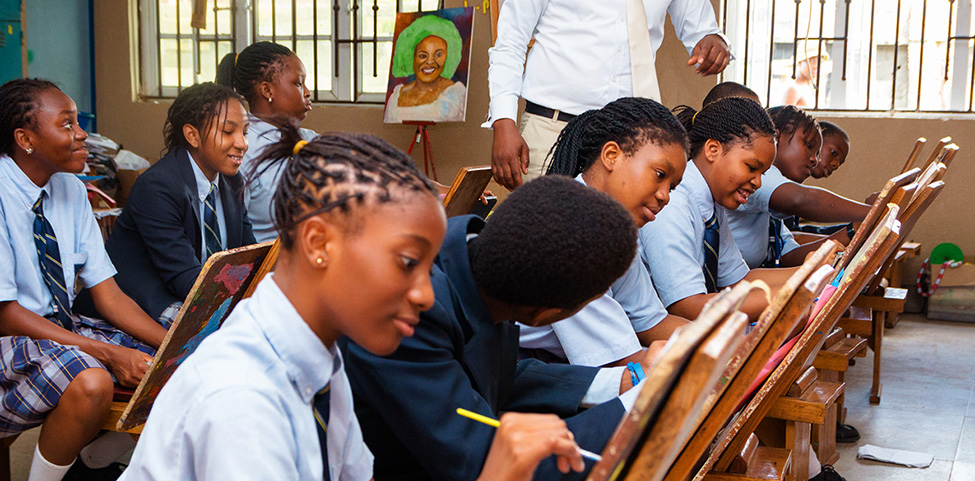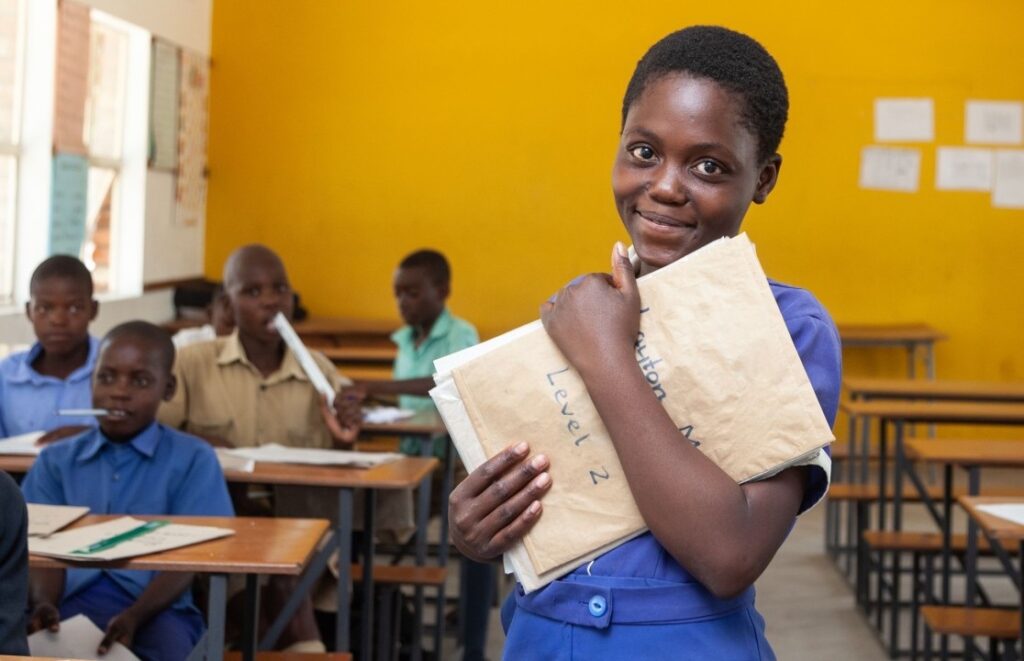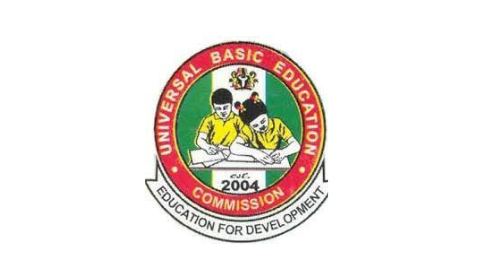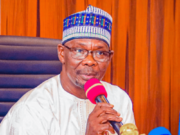Nigeria’s basic education landscape—long hampered by red tape, funding shortfalls, and systemic inefficiencies—has finally found fresh momentum. For years, matching grants designed to catalyse development remained inaccessible, classrooms lay bare, and children were left without teachers or textbooks. But that narrative is shifting warmly and purposefully, thanks to bold reforms led by the Universal Basic Education Commission (UBEC) under Executive Secretary Aisha Garba.
Table of Contents

From Stagnation to Momentum: Reform in Action
Under Garba’s leadership, UBEC has tackled bottlenecks that held back two decades of potential. By dismantling outdated protocols and introducing leaner, more transparent processes, the Commission has turned funds into tangible action, and Nigerians are noticing.
Over 3 million children are now benefiting directly from this revitalised system. Smart boards—long relegated to dreams—have finally taken root, with 740 units now in classrooms nationwide. Alternative schools serving girls now boast 250 desktop computers, while 140 talking computers support pupils with special needs. Learning materials have surged: 420,000 library items and over 158,000 Nigerian history books have reached classrooms, restoring relevance and identity to their learning.
On the textbook front, UBEC has distributed over six million primary school texts, closing the gap between policy and real learning. What began as a mere promise has, under diligent oversight, turned into performance, evidenced by a fund utilisation rate exceeding 60 percent, a sharp rise from previous levels below half.
Beyond Numbers: Restoring Faith in Education
These figures are significant, but the broader impact is more profound. Communities marred by neglect are becoming educational hubs again. Empty classrooms are filling; parents are engaged once more; and teachers feel empowered, not burdened. Education, in many parts, is starting to work again, with empathy and intent.
Yet, the journey doesn’t end here. UBEC’s vision extends beyond these initial gains, anchored in strategic, high-impact initiatives designed to deliver long-term transformation.

HOPE‑EDU: Scaling Impact with Purpose & Precision
Enter the HOPE‑EDU programme: a bold, US$552 million education initiative co‑financed by the World Bank and the Global Partnership for Education (GPE). Targeting 29 million Nigerian children, 500,000 teachers, 65,000 public schools, and 10,000 non‑formal centres, HOPE‑EDU is UBEC’s flagship for systemic change.
As Nigeria’s lead implementing agency, UBEC is offering technical support and alignment tools to state governments, ensuring HOPE‑EDU is not just aspirational rhetoric but real transformation at scale. The programme’s focus on outcomes, equity, and capacity building demonstrates a shift: success is no longer about mere access, but about how well children learn, wherever they are.
Data-Driven, Inclusive, and Flexible Reform
At the core of UBEC’s strategy lies evidence-based governance. Rather than one-size-fits-all, interventions are tailored through real data, whether deploying digital tools in remote areas or providing culturally resonant textbooks. The mission is clear: quality basic education must be non-negotiable, even in corners previously ignored.
Consider the stakes: with an estimated 10.5 million out-of-school children at the programme’s inception, urgency is real, but consistency is UBEC’s strategic edge. Reforms are not merely reactive; they’re proactive, building systems that last.
Why This Matters: Rebuilding from the Ground Up
UBEC’s work affirms a foundational truth: tertiary education, workforce readiness, and governance all stem from a strong primary base. Teaching children how to read, write, think, and question doesn’t just enrich individual lives—it strengthens the future of the nation.
The challenges of Nigeria’s education sector didn’t emerge overnight, and they won’t fade quickly either. But a system that learns, adapts, and delivers is on its way—guided by transparency, responsiveness, and human-centred policy.

Sustaining the Mission: Shared Responsibility
UBEC may lead at the centre, but sustaining momentum demands collective ownership. State governments, local communities, headteachers, and parents must embrace and extend this vision. The change on offer—a system now built for flexibility and efficiency—invites all stakeholders to act with care.
Ultimately, these reforms are not just about numbers. They’re about the girl in a rural classroom finally accessing a computer. They’re about children with disabilities being included, engaged, and equipped. They’re about turning classrooms back into places of wonder, not neglect.
This is not mere reform—it’s a renewed declaration: every Nigerian child deserves a fair beginning. Under Aisha Garba’s leadership, UBEC has shown the capacity to deliver. And the promise is clear—the journey is only beginning.
Join Our Social Media Channels:
WhatsApp: NaijaEyes
Facebook: NaijaEyes
Twitter: NaijaEyes
Instagram: NaijaEyes
TikTok: NaijaEyes
READ THE LATEST EDUCATION NEWS







































